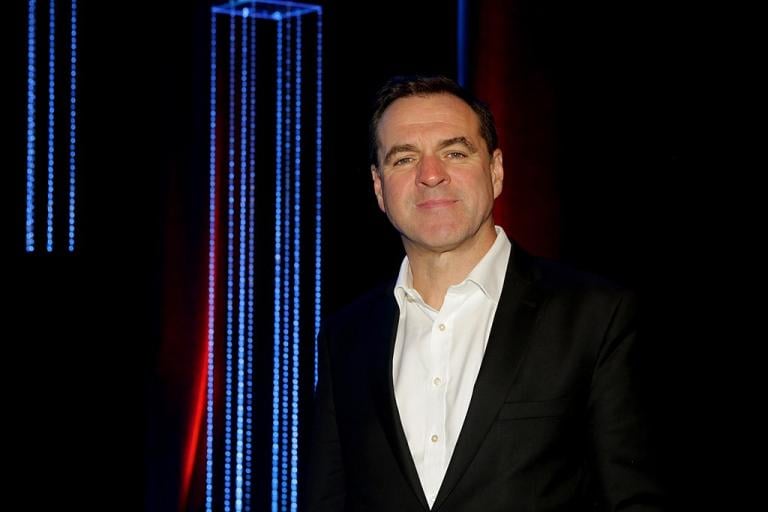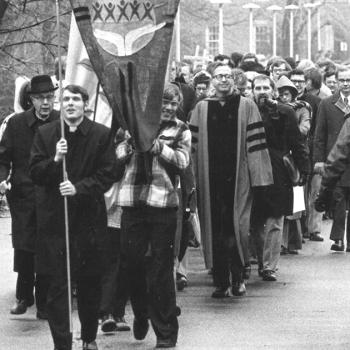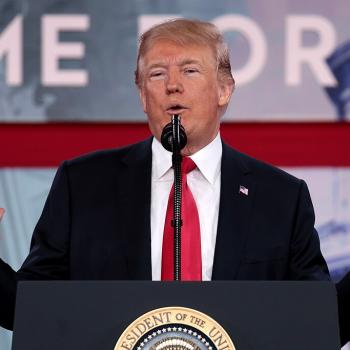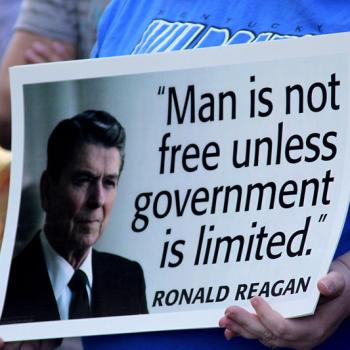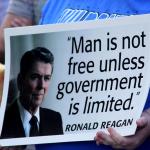The Cold War between the Western democracies, led by the United States and NATO, and the Communist bloc led by the Soviet Union and China, was a period of tension, espionage, and jockeying for influence over the non-aligned nations, with occasional flare-ups of hot wars, such as in Korea and Vietnam. It lasted from 1947 to 1991, when the Soviet Union collapsed.
Niall Ferguson is a Scottish-American conservative thinker, fellow at the Hoover Institute (among other think tanks), a founder of the alternative higher education institution the University of Austin, and the husband of Ayaan Hirsi Ali.
He has been arguing that a new cold war is emerging. The alliance between Russia, China, and Iran and their common ambitions, he says, constitutes a new “axis,” which Western democracies are having to confront. He cites Russia’s invasion of Ukraine, Iran’s proxy wars against Israel and the conservative Arab regimes, and China’s military buildup and threat to Taiwan. (See his article New Cold War and a New Axis of Evil.)
Recently, though, he added a disturbing twist to his thesis. In Cold War II, the United States is paralleling the Soviet Union! He develops this notion in his essay for The Free Press entitled We’re All Soviets Now, with the deck, “A government with a permanent deficit and a bloated military. A bogus ideology pushed by elites. Poor health among ordinary people. Senescent leaders. Sound familiar?”
Here are some of his points of comparison:
(1) A key weakness of the Soviet Union was its “soft budget constraint,” so that the government never had enough money for its ambitions. Ferguson sees parallels in the U.S. deficits and a national debt whose service now exceeds what we spend on defense.
(2) In the Soviet Union, investment decisions were largely determined by the central government. Which reminds Ferguson of the current administration’s “industrial policy.”
(3) The Soviet Military was huge and formidable on paper. “But paper was what the Soviet bear turned out to be made of.” It couldn’t even win a war in Afghanistan. (Ouch!) The U.S. military is like the Soviet army in other ways. Ferguson quotes a report that concludes, “America’s military has a lack of modern equipment, a paucity of training and maintenance funding, and a massive infrastructure backlog. . . . it is stretched too thin and outfitted too poorly to meet all the missions assigned to it at a reasonable level of risk.”
(4) “Gerontocratic leadership was one of the hallmarks of late Soviet leadership, personified by the senility of Leonid Brezhnev, Yuri Andropov, and Konstantin Chernenko.” I’ll let you finish the comparison.
(8) “A bogus ideology that hardly anyone really believes in, but everyone has to parrot unless they want to be labeled dissidents—sorry, I mean deplorables? Check.”
(9) “A population that no longer regards patriotism, religion, having children, or community involvement as important? Check.
(10) “How about a massive disaster that lays bare the utter incompetence and mendacity that pervades every level of government? For Chernobyl, read Covid.”
(11) “And, while I make no claims to legal expertise, I think I recognize Soviet justice when I see—in a New York courtroom—the legal system being abused in the hope not just of imprisoning but also of discrediting the leader of the political opposition.”
This stings. Ferguson identifies American weaknesses that might prevent us from prevailing in any kind of war, whether hot or cold. But what distinguishes us from our adversaries?
Both World War II and the subsequent Cold War were conflicts between the ideology of freedom and the ideology of totalitarianism; that is, the notion that a central government, whether Fascist or Communist, should exercise “total” control over all facets of the nation.
I’m thinking that in a Cold War II, freedom vs. totalitarianism is still the issue, with some differences and special challenges for the American side.
The Soviet Union exercised total control over its people but did this incompetently. China, though, seems to be doing this effectively, adding to its Communism a measure of market economics while still keeping its citizens under strict control with the help of “surveillance state” technology.
Totalitarianism also explains how secular Marxism and radical Islam can ally with each other. Both are totalitarian, seeking to control every aspect of their subjects’ lives. Islam, a this-worldly religion, does this through sharia law.
Our problem is that this totalitarian impulse has permeated the American side as well, as we see in the alliance between the American left and Islamic terrorists in the Gaza war protests, America’s “illiberal” thinkers on both the left and the right, and the ambitions of America’s nomenklatura to regulate and control the behavior and the thinking of their fellow citizens.
Depending on the direction America takes, maybe we have, in effect, lost the ideological battle of the first cold war. In which case, there won’t be much point in a Cold War II.
Photo: Niall Ferguson by Fronteiras do Pensamento, CC BY-SA 2.0 <https://creativecommons.org/licenses/by-sa/2.0>, via Wikimedia Commons


